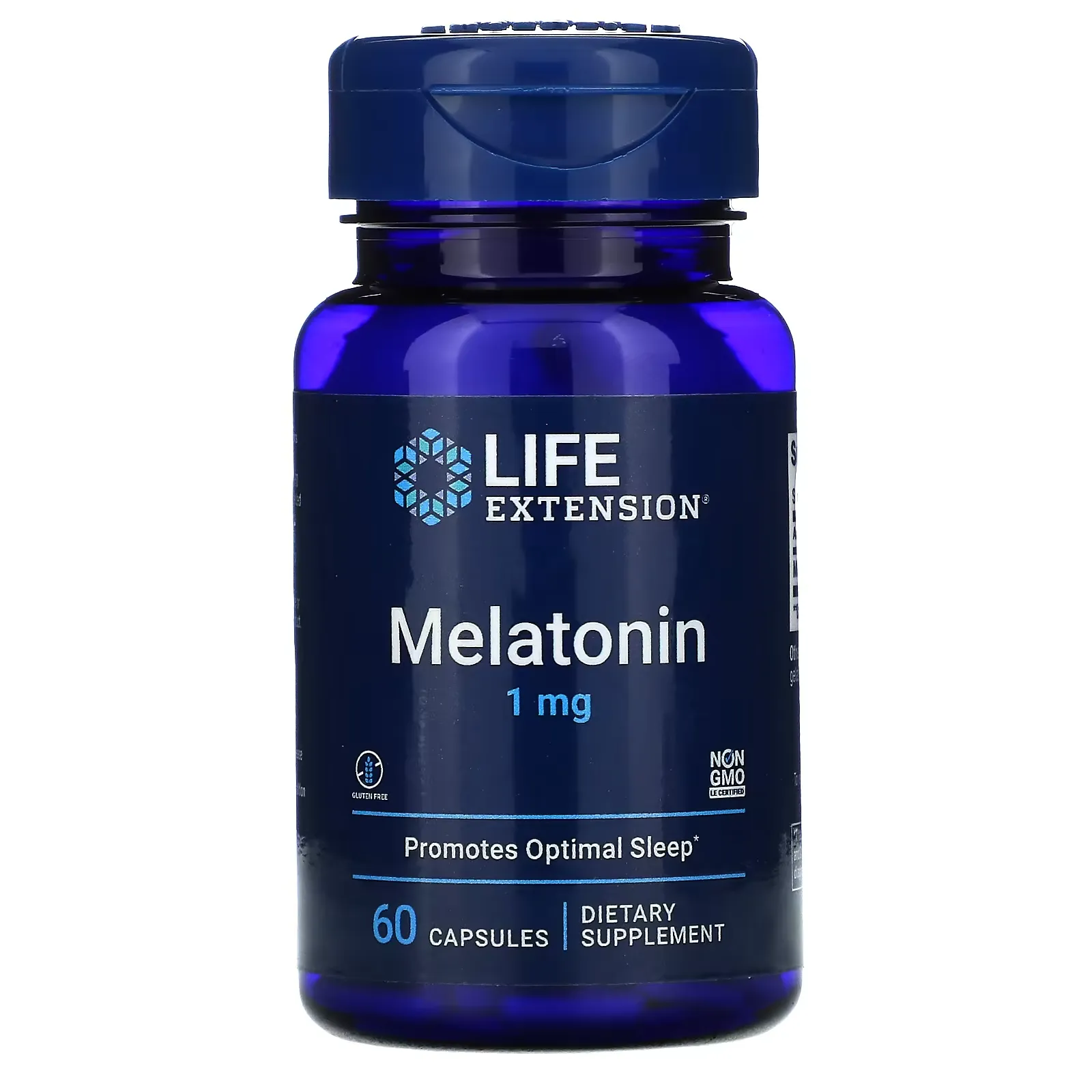- Gluten Free
- Non GMO LE Verified
- Promotes Optimal Sleep
- Dietary Supplement
Melatonin is a hormone derived from the amino acid tryptophan. Primarily synthesized in your pineal gland, melatonin is released mostly at night to make falling asleep easier. In addition to healthy sleep support, melatonin can help inhibit oxidative stress to promote healthy brain function, immune health and more.
Melatonin increases the speed of falling asleep and adds to quality of sleep. It also offers powerful protection against free radicals.
Melatonin Benefits
- Promotes restful sleep
- Helps support circadian rhythms &; immune function
- Promotes cellular DNA health
- Helps inhibit oxidative stress &; protect against free radicals For occasional sleeplessness.
Melatonin: Just to Support Sleep?
People take melatonin to encourage optimal sleep, but melatonin also supports other important bodily systems: it helps inhibit oxidative stress, promotes immune health and supports cognitive function. So, melatonin isn’t just for restful sleep, but overall well-being.
Melatonin increases the speed of falling asleep and adds to the quality of sleep. It also offers strong protection against free radicals and supports healthy DNA.
Melatonin is a hormone derived from the amino acid tryptophan. It's primarily synthesized by your pineal gland in your brain and released mostly at night to make falling asleep easier.
In addition to healthy sleep support, melatonin offers protection against free radicals and has been shown to support immune health, healthy brain function and more.
Melatonin and sleep
A good night's sleep is crucial for overall health and well-being. But many people experience difficulty falling asleep and staying asleep. Healthy sleep patterns are governed by your body's circadian rhythms, and melatonin helps keep your circadian rhythms in tune.
But melatonin release declines with age, and can be affected by jet lag, shift work and more. Melatonin promotes healthy sleep/wake patterns and encourages the onset, duration and quality of sleep.
Melatonin and oxidation
Melatonin also offers strong protection against oxidative stress. Melatonin is especially important for healthy cellular DNA and mitochondria support because it helps inhibit oxidative damage by directly scavenging free radicals. Melatonin does so more effectively than many other antioxidants.
Melatonin and immune health
Melatonin has a beneficial impact on the immune system. It activates T-helper cells, which trigger other immune cells, boosting immune system response to foreign molecules.
Melatonin and cognitive health
Age-related cognitive decline may be directly correlated to melatonin levels. Melatonin supplementation can help support the brain's normal protection against free radicals and may help support cognitive function.








